
In a pandemic, false news stories create real harm. But facts save lives. Wherever you are and whatever you’re doing right now, you can help keep truth well.
So what can you do?
Check your gut.
If something on your feed seems sketchy, it probably is. So listen to your inner skeptic.
Check the claim.
Copy the headline into a web search to see if it’s been debunked by fact checkers.
Check the source.
If it’s not coming from reputable experts, doubt it.
Challenge the misinfo.
Call out rumours and false news stories wherever you see them.
Share the truth.
Educate others with verifiable facts from quality sources.
Check your gut.
If something on your feed seems sketchy, it probably is.
Check the claim.
Copy the headline into a web search to see if it’s been debunked by fact checkers.
Check the source.
If it’s not coming from reputable experts, doubt it.
Challenge the misinfo.
Call out rumours and false news stories wherever you see them.
Share the truth.
Educate others with verifiable facts from the real experts.
Who should you listen to?
People who know the facts.
That means public health leaders, doctors and reputable news sources. Not your therapist. Not your celebrity crush. Not even your wise old granny.
Science moves fast, and only real experts can keep up.
If you’re unsure who to turn to, start here.
Who should you listen to?
People who know the facts.
That means public health leaders and doctors. Not your therapist. Not your celebrity crush. Not even your wise old granny.
Science moves fast, and only real experts can keep up.
If you’re unsure who to turn to, start here.
How do I challenge bad info?
As often as you can.
Misinfo spreads fast, so call it out when you see it.
As politely as you can.
Confront the misinformation, not the person sharing it. Keep it civil, keep it factual.
As clearly as you can.
Share the verifiable facts and point people to the expert sources.
As often as you can.
Misinfo spreads fast, so call it out when you see it.
As politely as you can.
Confront the information, not the person sharing it. Keep it civil, keep it factual.
As clearly as you can.
Share the verifiable facts and point people to the expert sources.
Join the fight against COVID-19 misinformation.
Follow @KeepTruthWell on Instagram to learn simple fact-checking tips, then share them with your friends.
Share the Truth
Copy these bite-sized teachables onto your own feeds with the hashtag #KeepTruthWell.
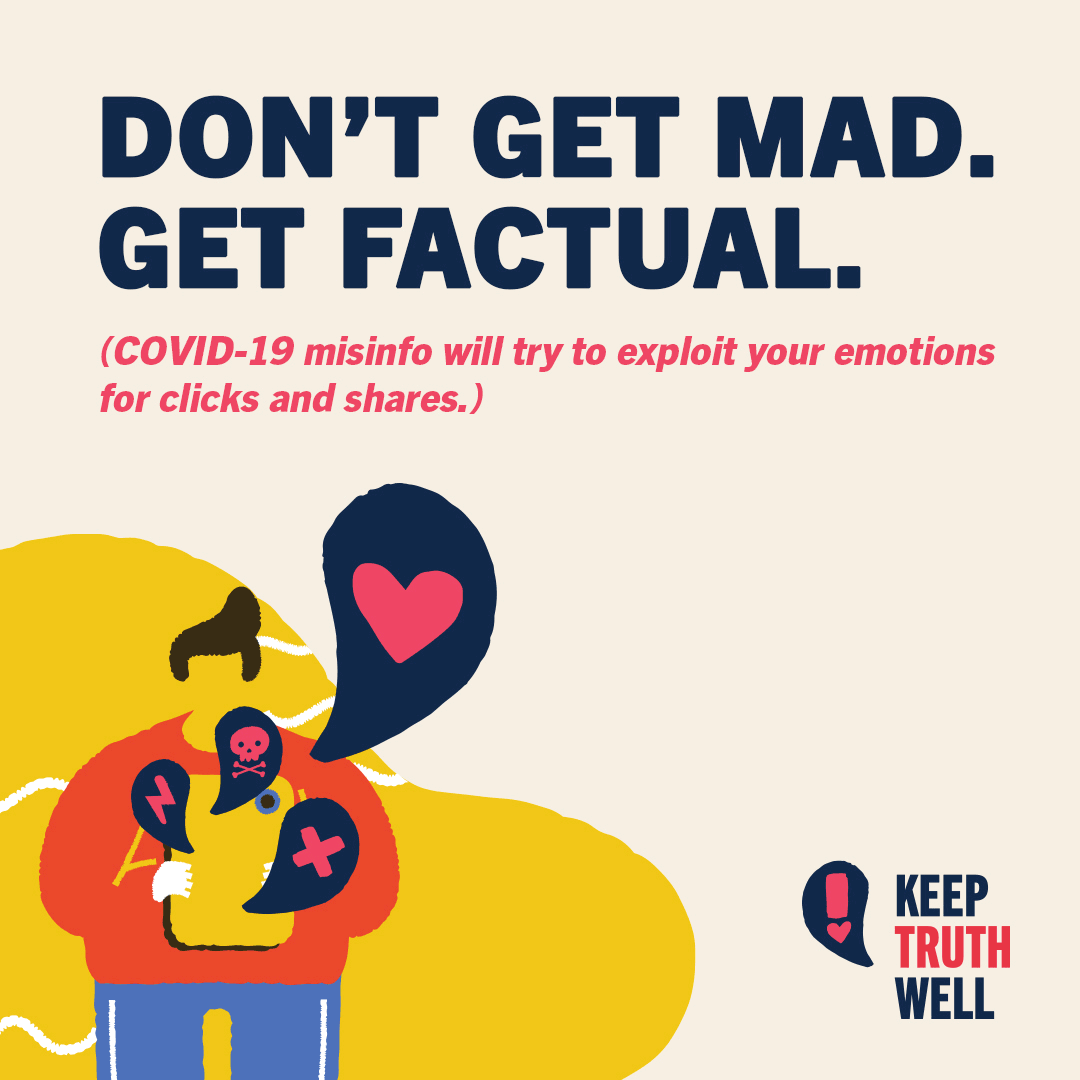
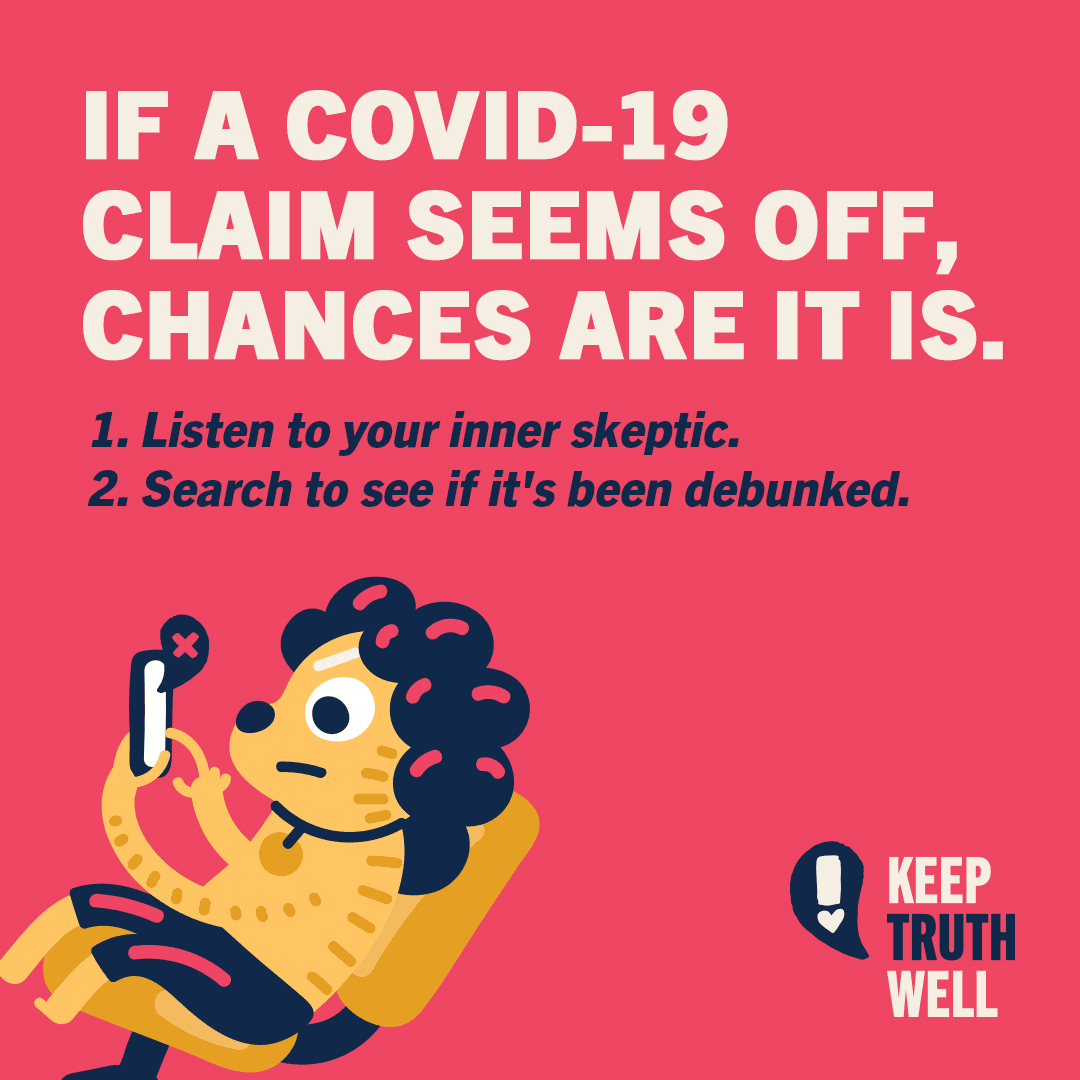
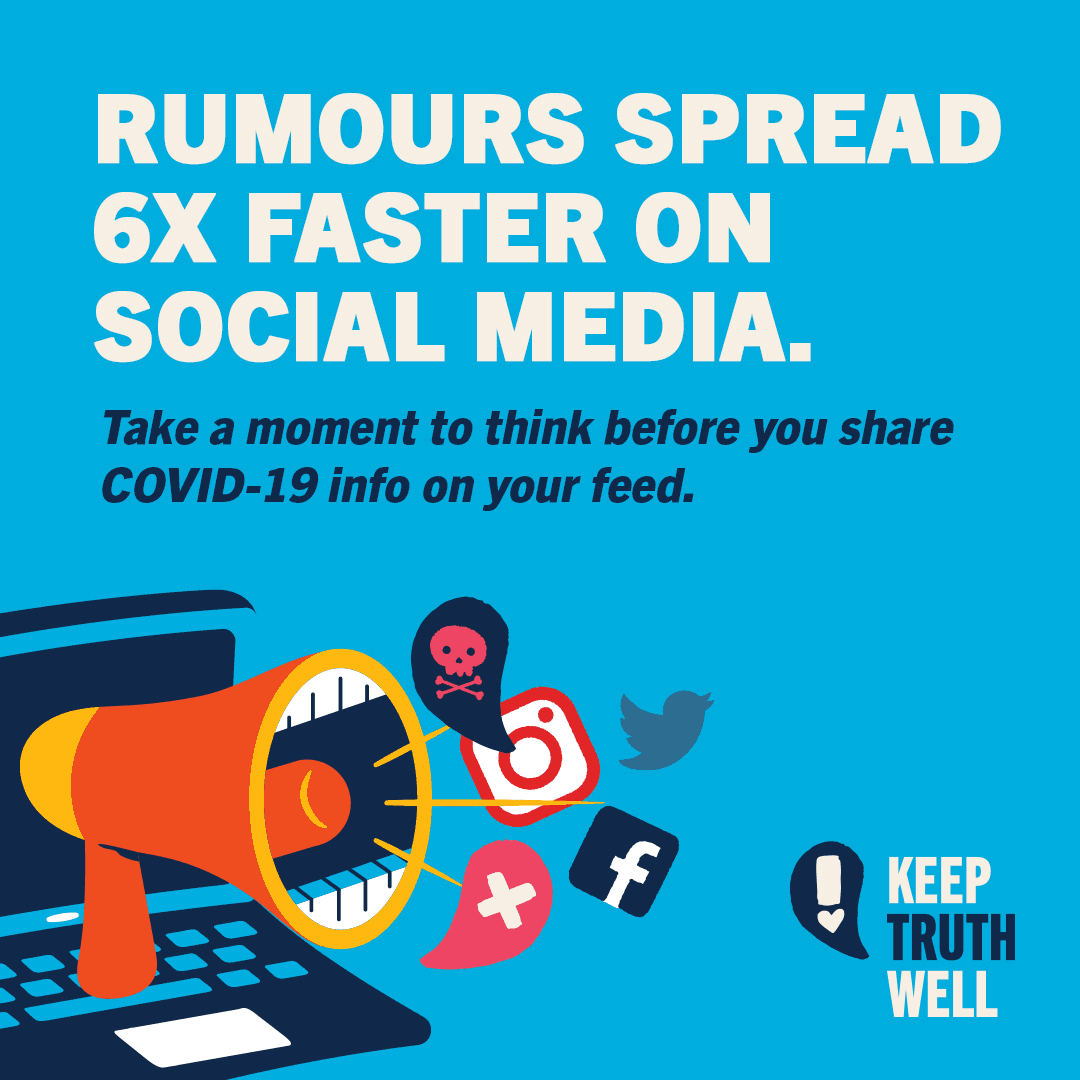
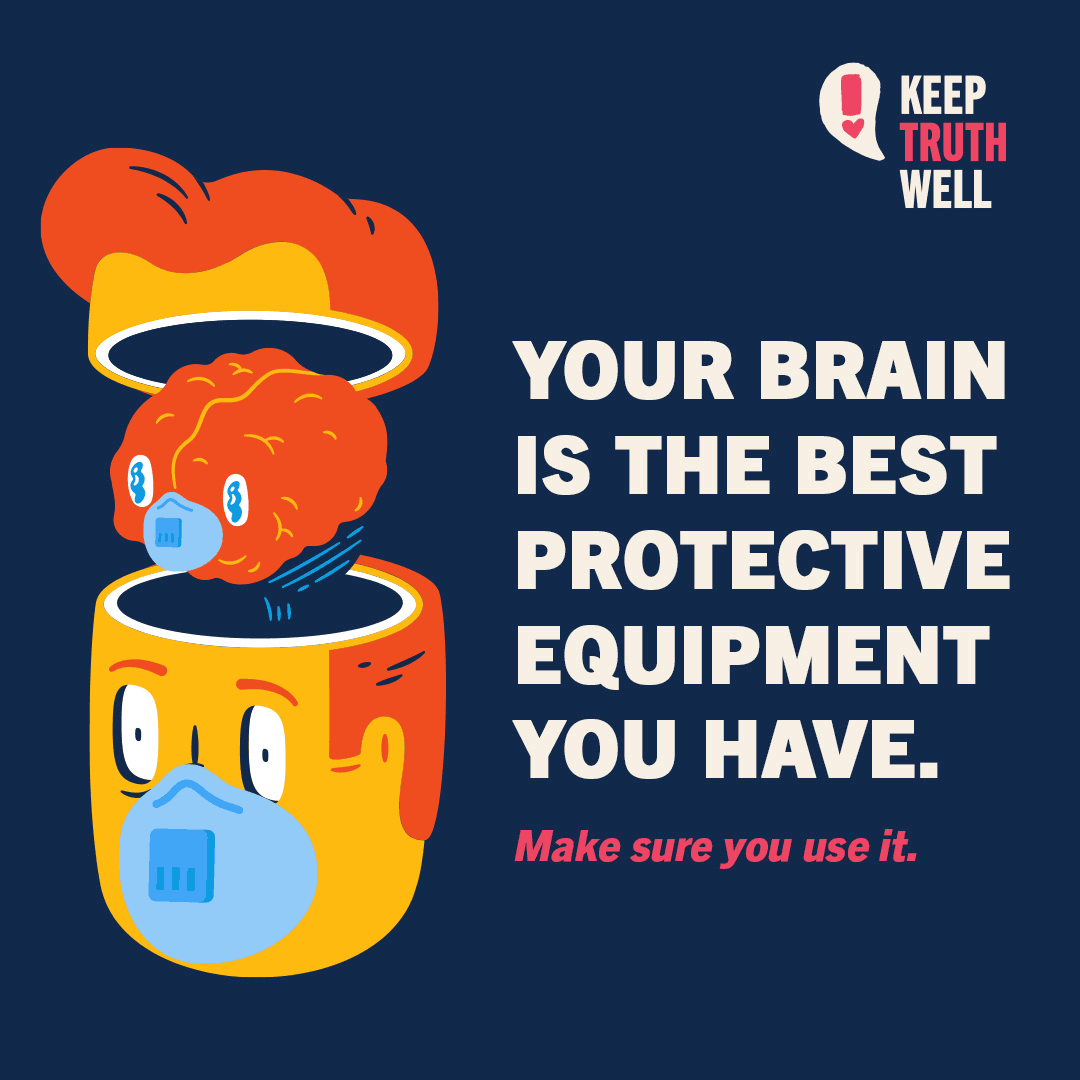
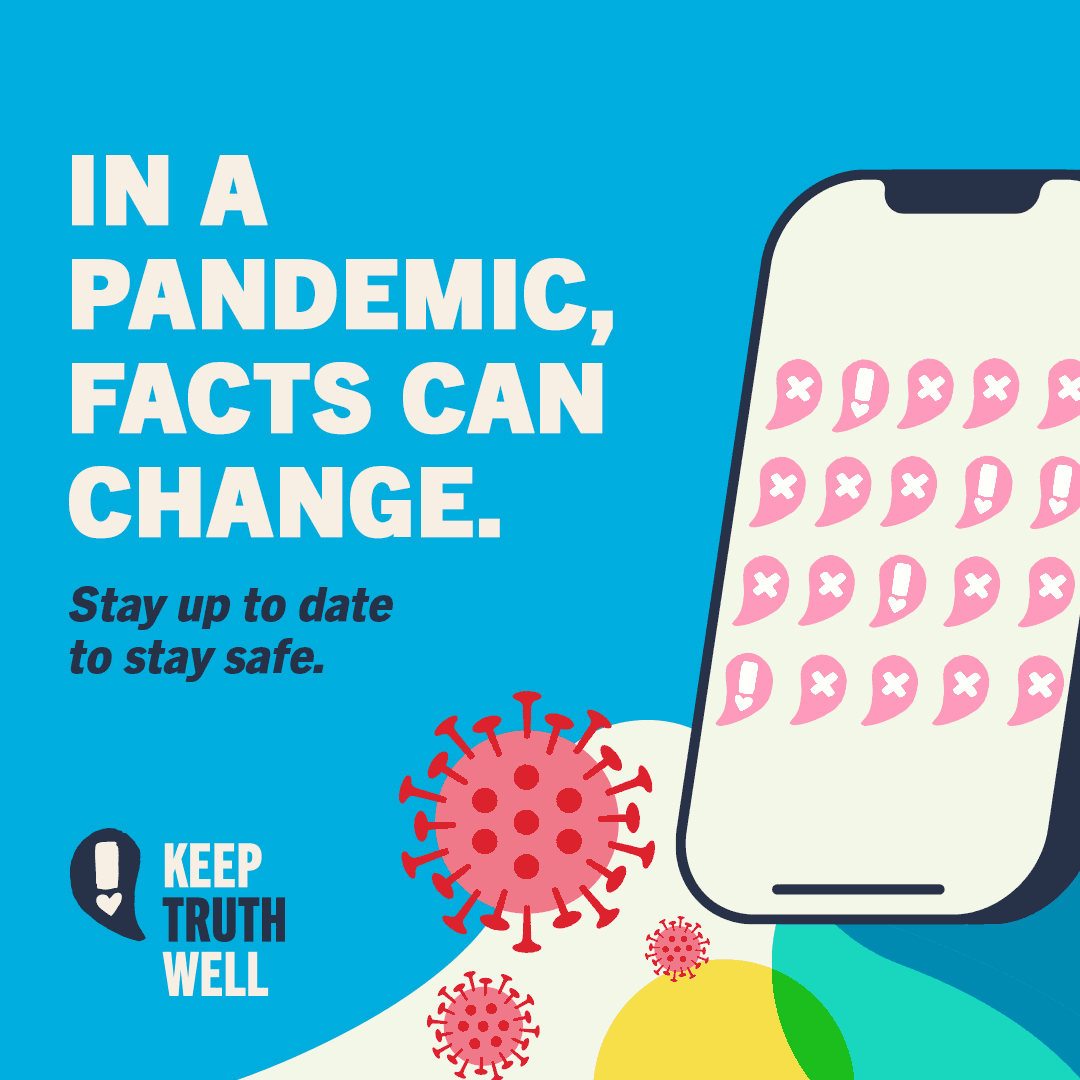
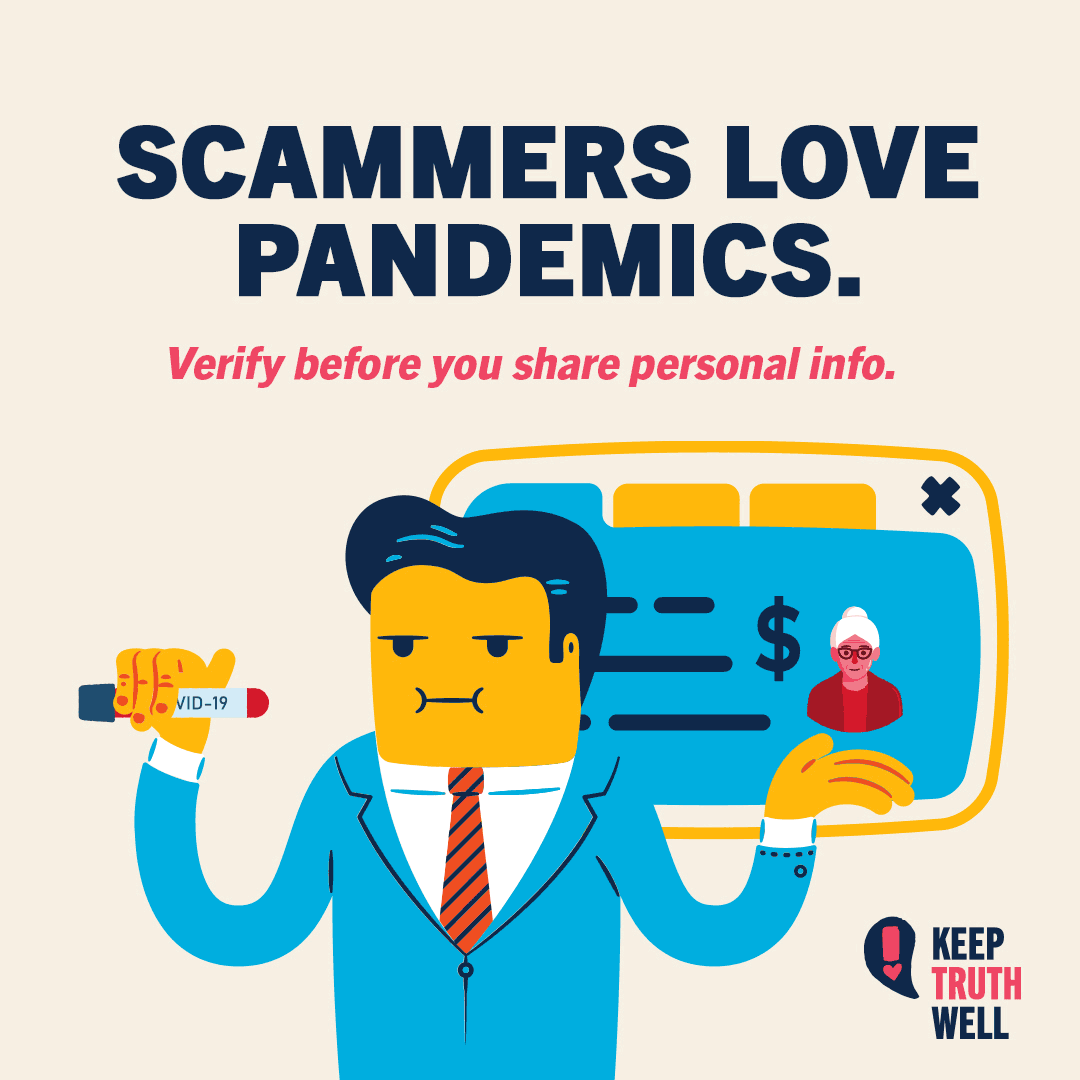
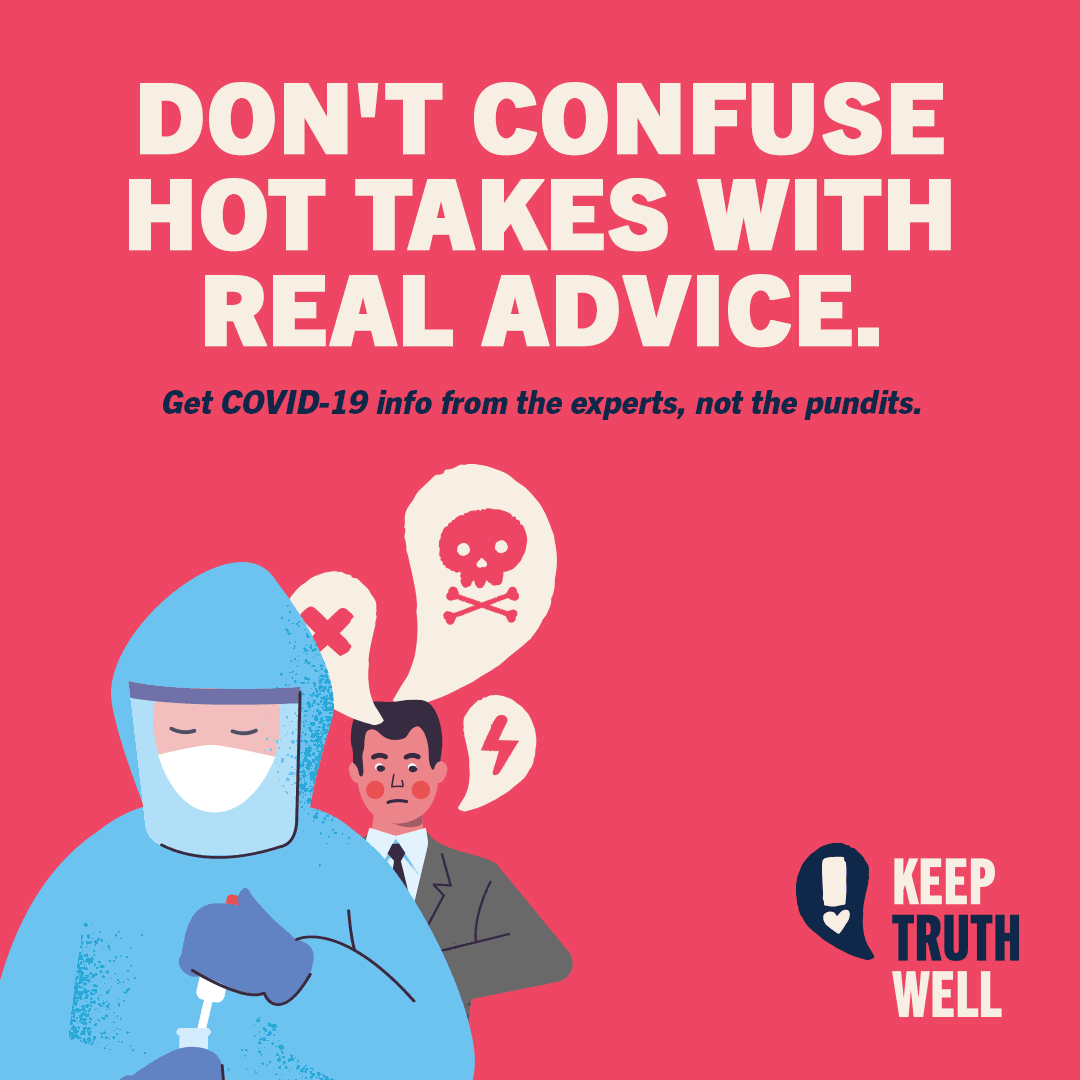
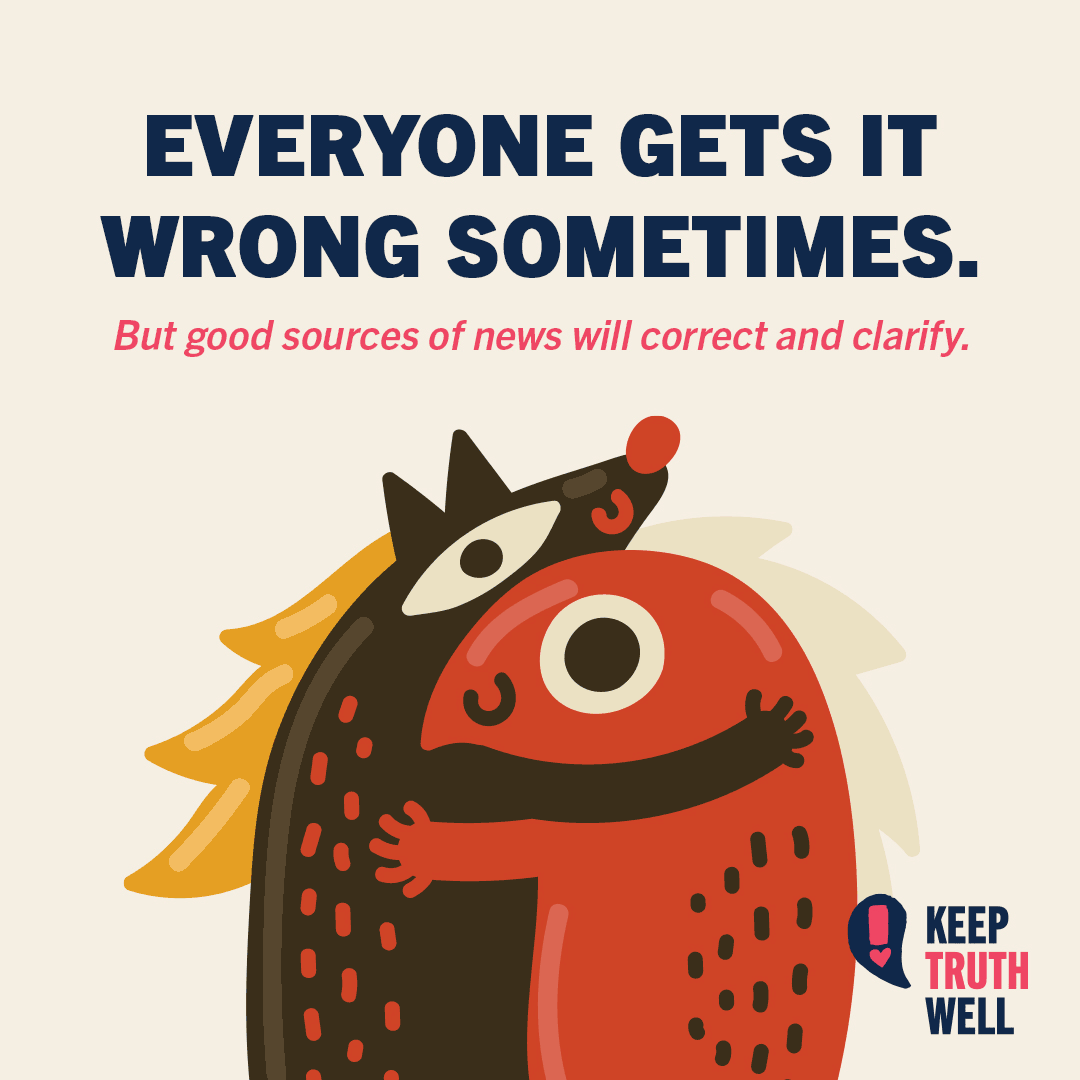

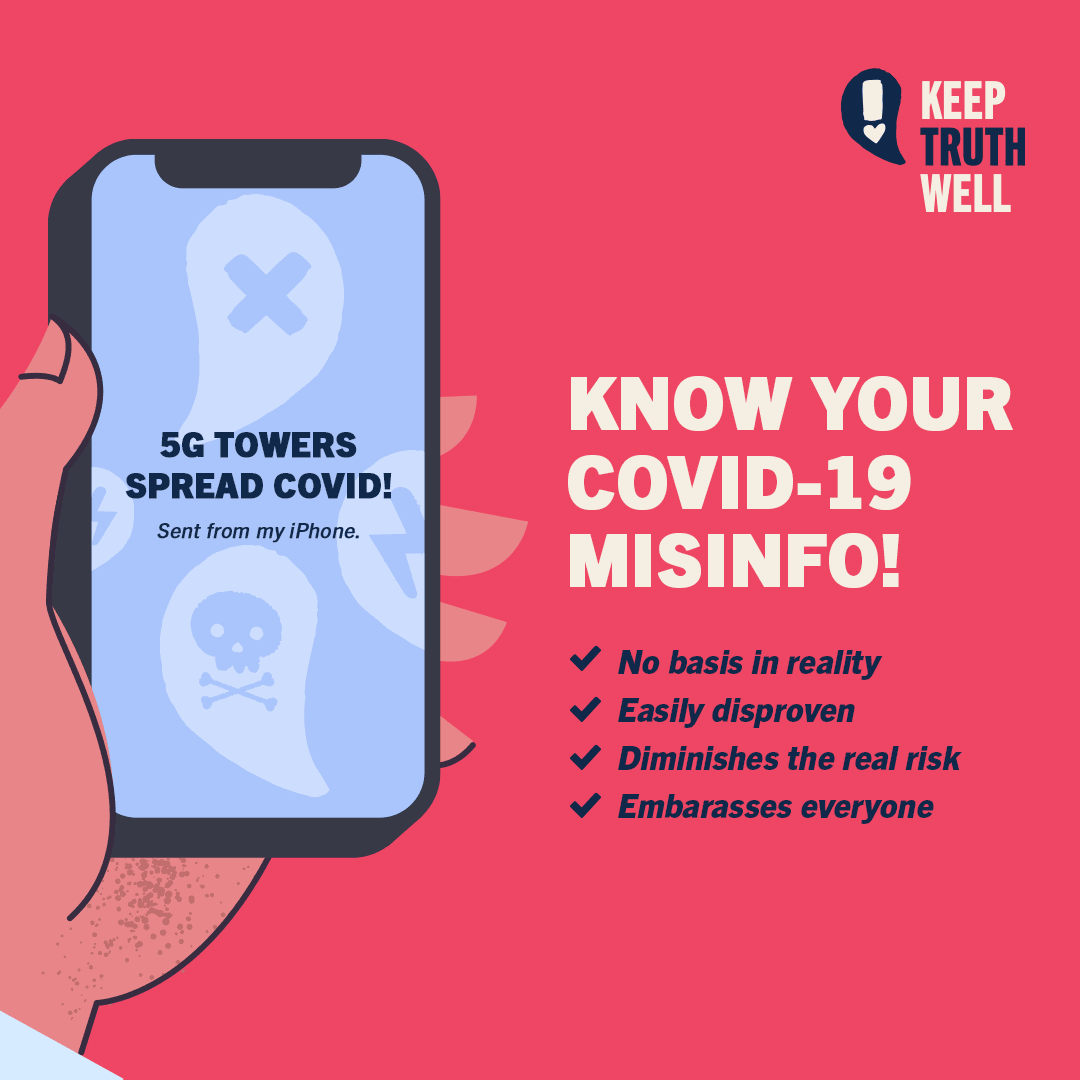
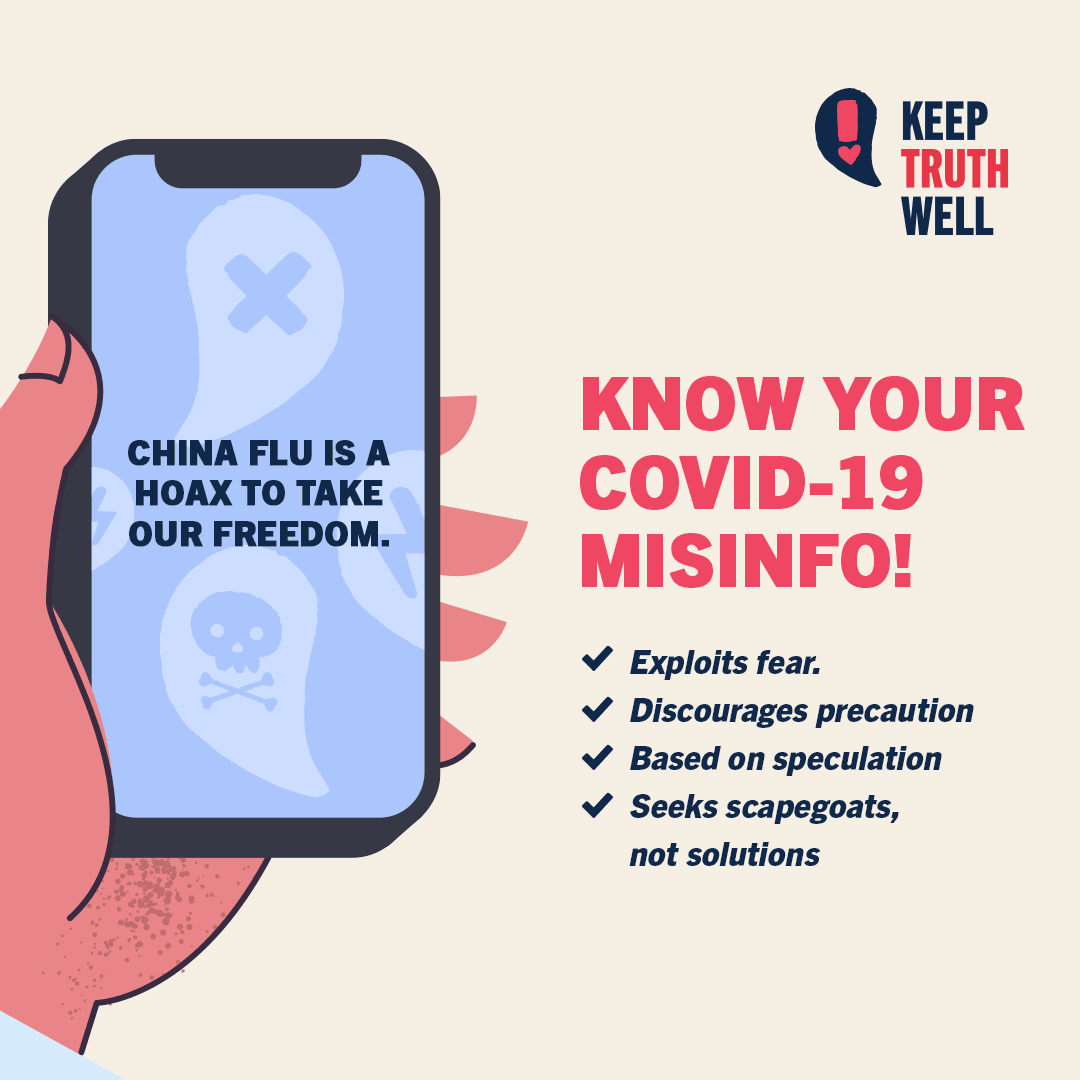
Find the Fact Checkers
Meet the people keeping truth well.








